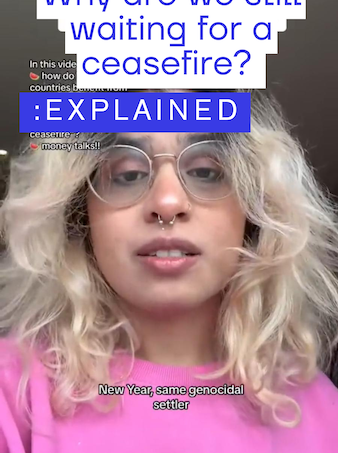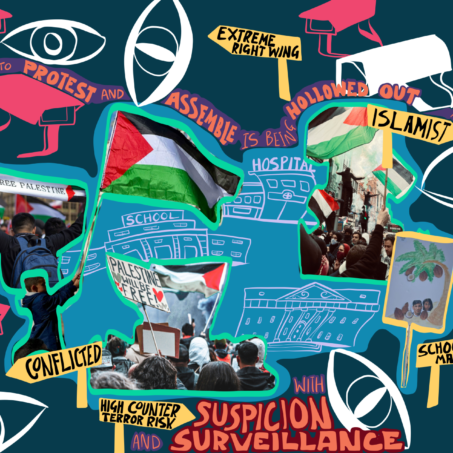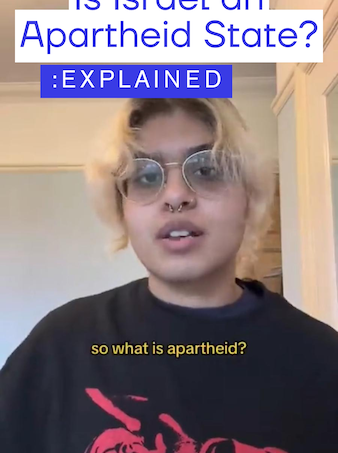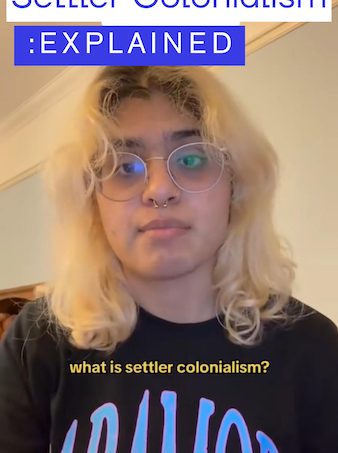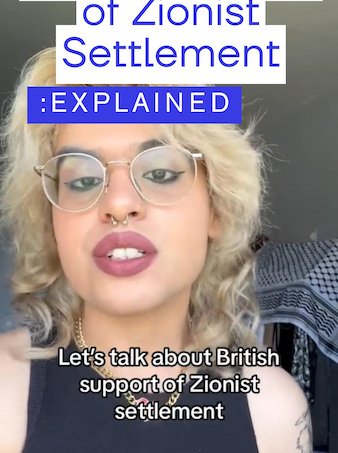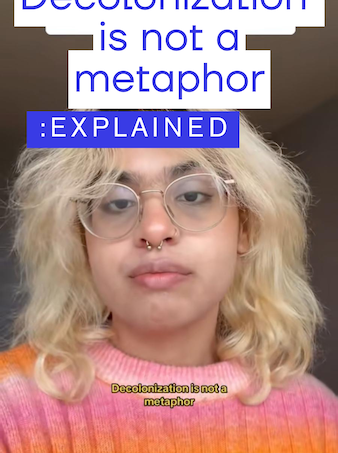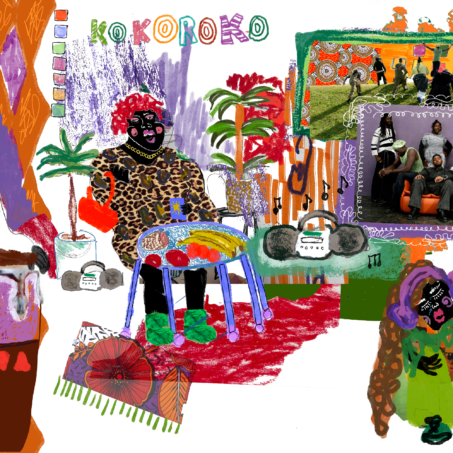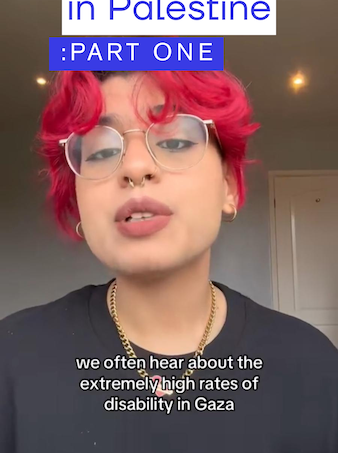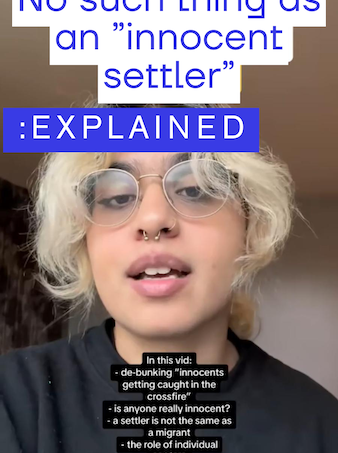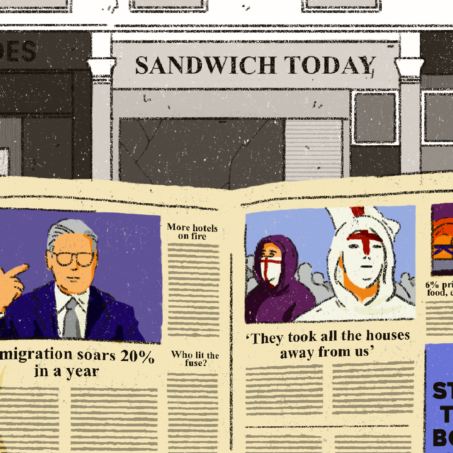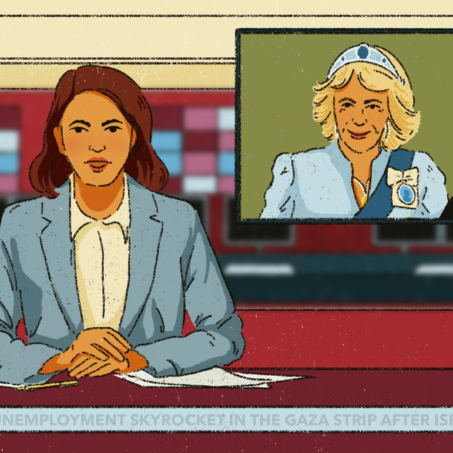Wherever imperialism strikes, energy company British Petroleum is often close by.
On 30th October, a few weeks into Israel’s genocidal assault on Gaza, BP was one of the six companies which accepted a gas exploration licence from the Zionist entity – making them complicit in Israel’s genocide of the Palestinian people through their business dealings with Israel.
Last Sunday, we returned to the British Museum in protest of its new 10-year, £50 million partnership with BP, whose normalisation of relations with the settler colonial regime clearly displays their willingness to enable colonial looting and extraction of Palestinian natural resources.
With banners reading “BOYCOTT THE BRITISH MUSEUM” and “DROP BP NOW” stationed at its entrance on Great Russell Street, we recognised our power as an anti-imperialist climate collective striking directly at the core institutions that uphold and extend the legacy of the British Empire – shutting down the museum for the second time in a row without even having to enter the main building.
Yet, the Museum’s unprecedented collaboration with the London Metropolitan Police to preemptively try to suppress our demonstration reveals how their supposed liberal tolerance for political participation immediately crumbles when faced with people who heed the call of the Palestinian people to oppose all forms of complicity with Israel’s genocide.
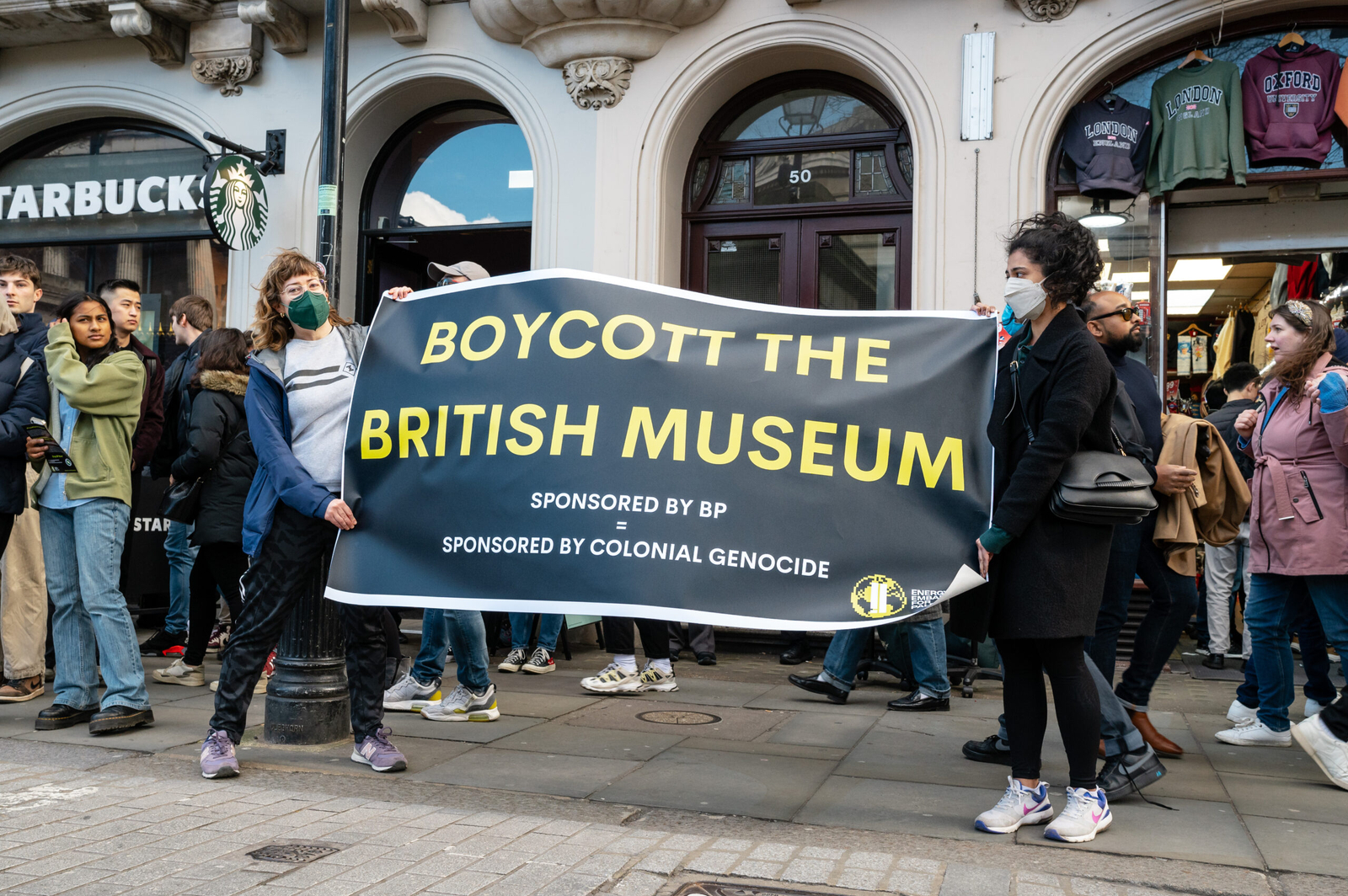

Cultural development in the Global North cannot come at the expense of the cultural genocide in the Global South
We are not alone in unravelling these contradictions. Our demonstration was part of a global weekend of actions targeting the cultural sector’s silence and complicity in the ethnic cleansing of Palestinians. Activists targeted the Science Museum in London and the Metropolitan Museum of Art in New York for their institutional partnerships with individuals and companies profiting from the Zionist settler colonial project in Palestine.
Together, these actions point to the shifting tide in public consciousness around Palestine and the rise of a popular, mass action culture that rejects the premise of cultural development in the Global North coming at the expense of cultural genocide in the Global South.

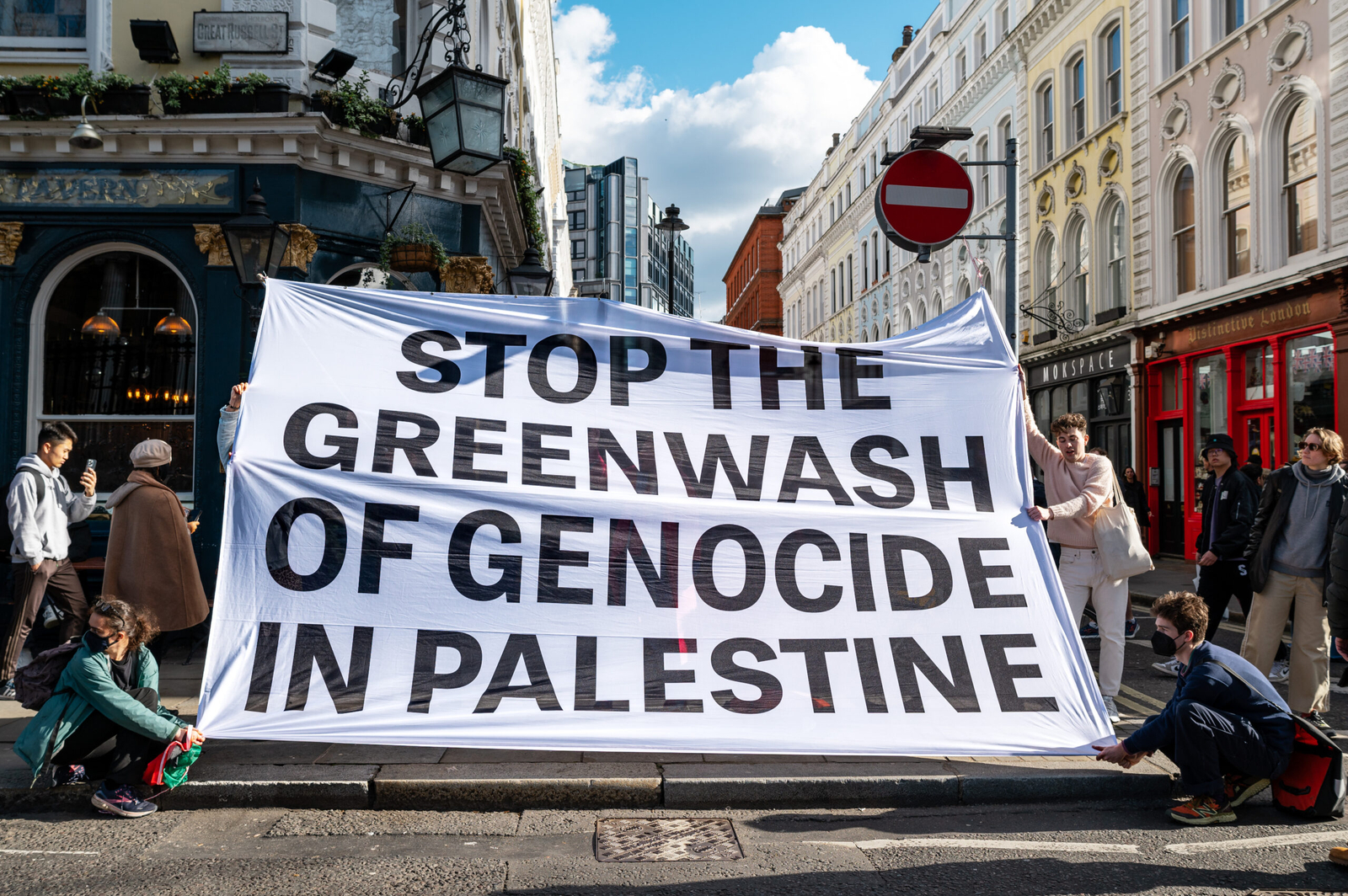
Surveillance and suppression of dissent on the rise
This seismic shift in public opinion around Palestine has been met with a surge in police surveillance and suppression of dissent in the West, carried out by the same states who simultaneously provide military equipment, financial support, and diplomatic cover to Israel. Germany and France have received considerable public attention around this.
The UK government is no exception, increasingly deploying facial recognition technology at peaceful mass-marches and proposing a set of new counter-extremism policies – which include the establishment of a new ‘counter-extremism Centre for Excellence’ and the cutting of ties or funding to groups, many of which are Muslim, deemed to have crossed the ‘extremism’ threshold. It is clear as day that the logic behind these new policy instruments share the same Islamophobia ingrained within the UK’s PREVENT policy.

Consequently, it should come as no surprise that the police would be called on to protect the intertwined interests of the British Museum and British Petroleum, as all three institutions have long been arms of the imperialist state, built on forcibly restraining anti-colonial movements and looting resources from colonised peoples.
The British Museum’s determination to keep a tight grip on their stolen artefacts, British Petroleum’s global plundering and extraction of colonised peoples’ natural resources, and the British police’s key role in maintaining the exploitation and control of colonial subjects in the days of past and present all keep the cogs of the British state turning.
However, the Museum’s brazen collaboration with the police ahead of our action on Sunday 24 March, as announced earlier on the day by a UK tabloid, was a strikingly shameful attempt to prevent our entry into an allegedly public space.
In response to our call to action, the Museum changed its standard entry policy to ticket-holders only, closed off its back entrance and left visitors queuing around the block for hours.
We remained steadfast in our decision to demonstrate, holding a mass protest of roughly 300 participants that grew as time went on. We remained outside the museum, holding banners, chanting our demands, and staged teach-outs which addressed the ongoing role energy companies play in fuelling a state committing genocide.
We did not block entry into the museum, and engaged with the visitors in the queue who were sympathetic to our cause after reading our flyers. Our protest started at 14:30 and shortly after, the police and security shut down entry to the Museum entirely. With our unrelenting chants for justice at its doorstep, the Museum suspended entry for the rest of the day.
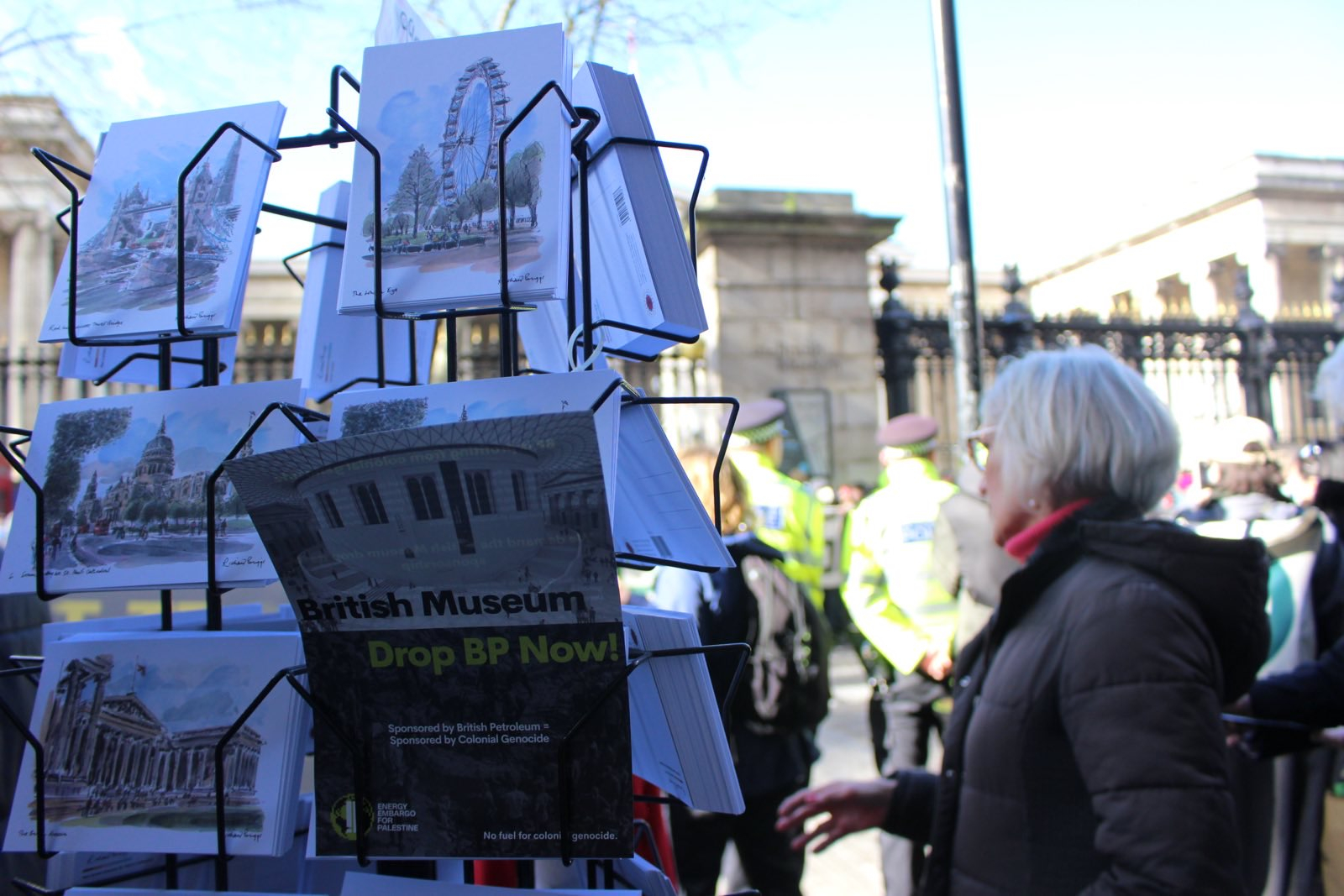
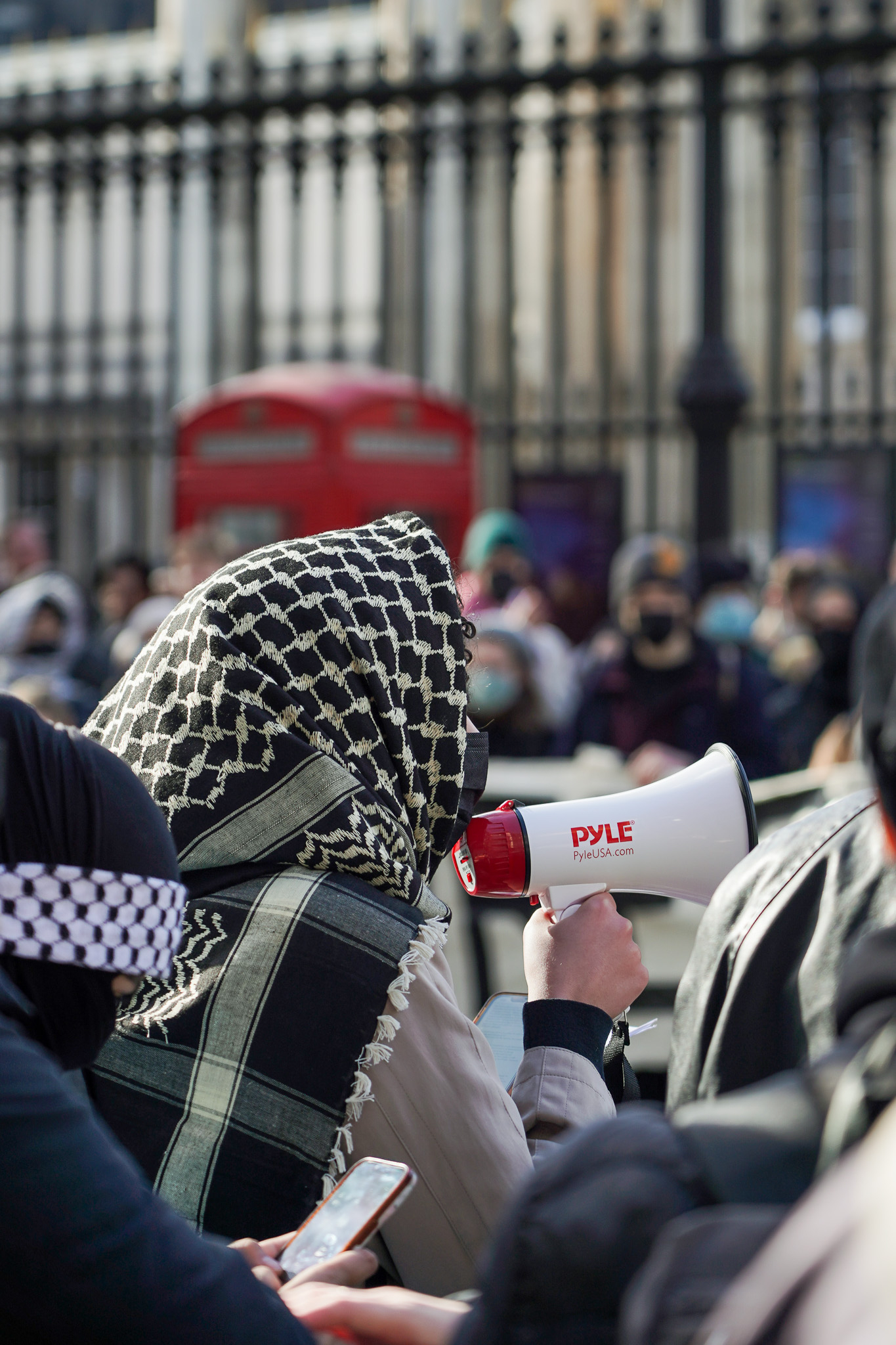
This heavy-handed security and police response must be situated within the context of the intensified crackdown on public displays of support for Palestine in Britain. From the conviction of pro-Palestine protestors over the use of a parachute emoji, to the government broadening its definition of ‘extremism’ to include advocacy groups like CAGE and the Muslim Association of Britain (MAB) – the law and state power is being consciously weaponised to quash dissent and disproportionately criminalise people of colour.
Far from an isolated set of events, these repressive moves emerge within an increasingly hostile atmosphere in the UK where former Home Secretary Suella Braverman is putting pressure on police forces to increase their use of public order and counter-terrorism powers. This is manifesting in targeting of people wearing keffiyehs, enormous police presence at protests, violent arrests, filming of protesters’ faces, cancellation of Palestine solidarity events, and more – evidence of which is being copiously reported by legal observers and The Network for Police Monitoring.
The British Museum, in its past 10 years of facing protest for its BP partnership, has never called the police on protesters to this scale or in advance. After the Museum announced their BP partnership in December, it hired new security personnel specifically in anticipation of protests.
The decision to intensify securitisation for this partnership cannot be separated from BP’s recent illegal activity in the Mediterranean, obtaining an exploration licence for natural gas in stolen Palestinian waters, and its fuelling of the Israeli war machine through exporting oil from Azerbaijan.
We have demonstrated twice at the British Museum, and both times the Museum immediately invoked a disproportionately large police response, often threatening us with arrests.

Join our mailing list
Sign up for shado's picks of the week! Dropping in your inbox every Friday, we share news from inside shado + out, plus job listings, event recommendations and actions ✊
Sign up for shado's picks of the week! Dropping in your inbox every Friday, we share news from inside shado + out, plus job listings, event recommendations and actions ✊
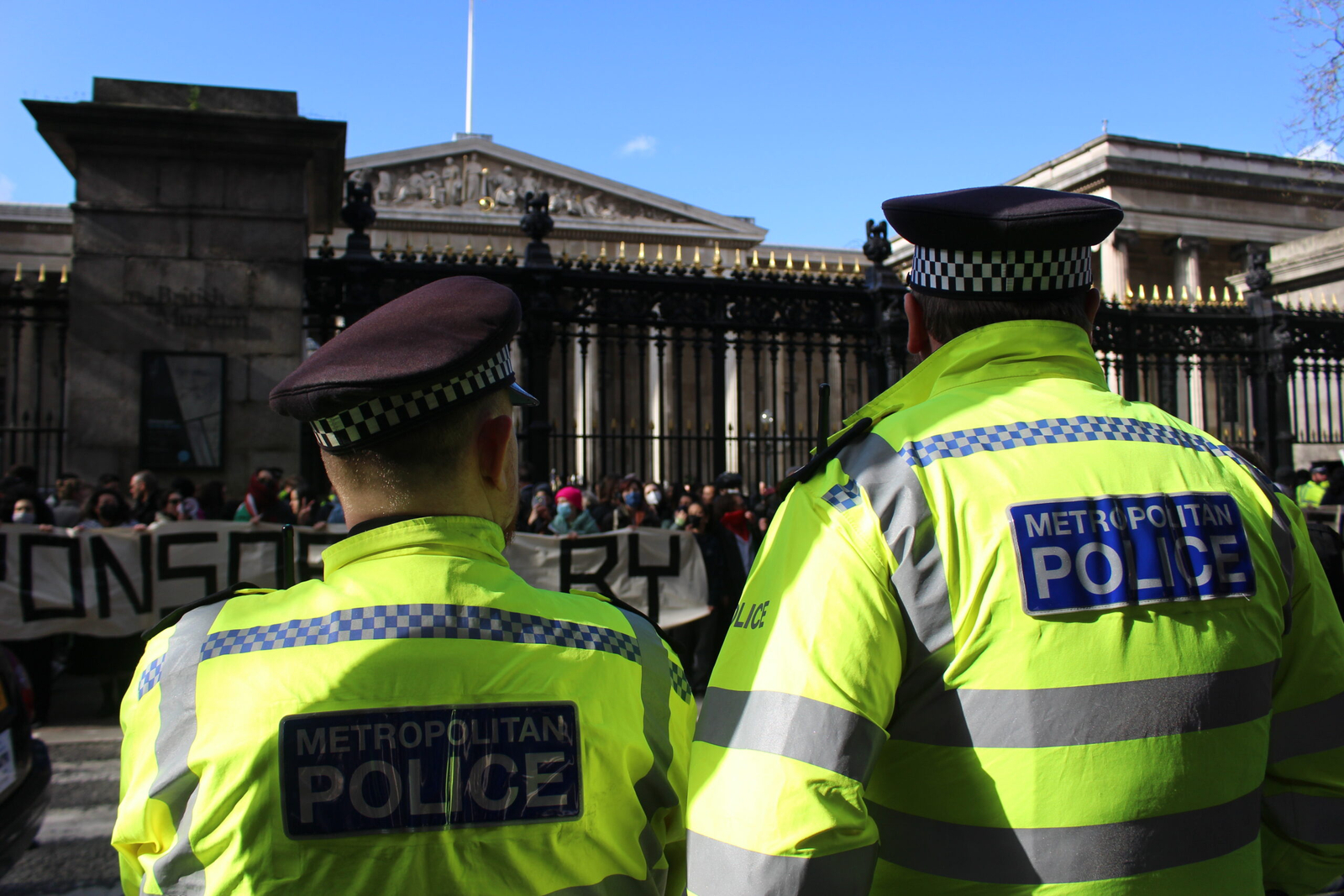
The British Museum knows perfectly well that the public is on our side, as does the Metropolitan Police. Visitors exited the Museum directly into our protest, tourists expressed their support, and many in the queue left after reading flyers explaining the grounds for a boycott of the Museum.
Our 30 metre banner, extending across the front gates of the Museum, read “SPONSORED BY BP = SPONSORED BY COLONIAL GENOCIDE”. No one could claim ignorance; the complicity of Britain’s number one tourist destination was laid bare for all to see.
Our action was an unequivocal success. We raised public consciousness around the marriage of colonial cultural institutions with neocolonial energy companies, and disrupted the Museum’s business as usual, all without having to step foot onto Museum property.
The British Museum was prepared to shut down and deprive itself of revenue from tourists because its outward reputation as a socially responsible public institution is inherently at odds with its imperialist foundations.
The British Museum claims that it “respects other people’s right to express their views and allows peaceful protest on site at the museum as long as there is no risk to the collection, staff or visitors.” But when hundreds of people gathered to do exactly this and to hold it to account, the Museum joined forces with the police and shut down for the afternoon.
BP’s colonial crimes fuelled by the global capital and empire
It is impossible for an institution built on stolen artefacts to “allow peaceful protest” when such demonstrations target its historical and current alliance with global capital and empire through its multimillion pound partnership with BP. The Museum’s official line therefore is not just weak, it’s emblematic of an untenable contradiction between image and reality that cannot sustain itself when exposed.
But the British Museum’s hollow liberal posturings do explain why its close relationship with BP is a perfect match. BP claims that its purpose is “reimagining energy for people and our planet” and that it wants to “improve people’s lives.” Such statements are farcical in the face of its historical role in backing the racist South African apartheid government and teaming up with other oppressive governments such as in Indonesia against the West Papuan peoples.
BP has an unsalvageable, immoral conscience that we will never appeal to. This rotten legacy continues with its gas exploration licenses off the coast of Gaza which were granted by Israel in November 2023 – amidst the ongoing genocide. Even more directly, energy watchdogs have disclosed BP’s role in fuelling the Israeli army that is invading and bombing Gaza right now.
It is evident that BP, like other multinational energy corporations, is motivated solely by fossil fuel extraction and the accumulation of profit, even seeing colonial genocide as an opportunity to strike business deals.
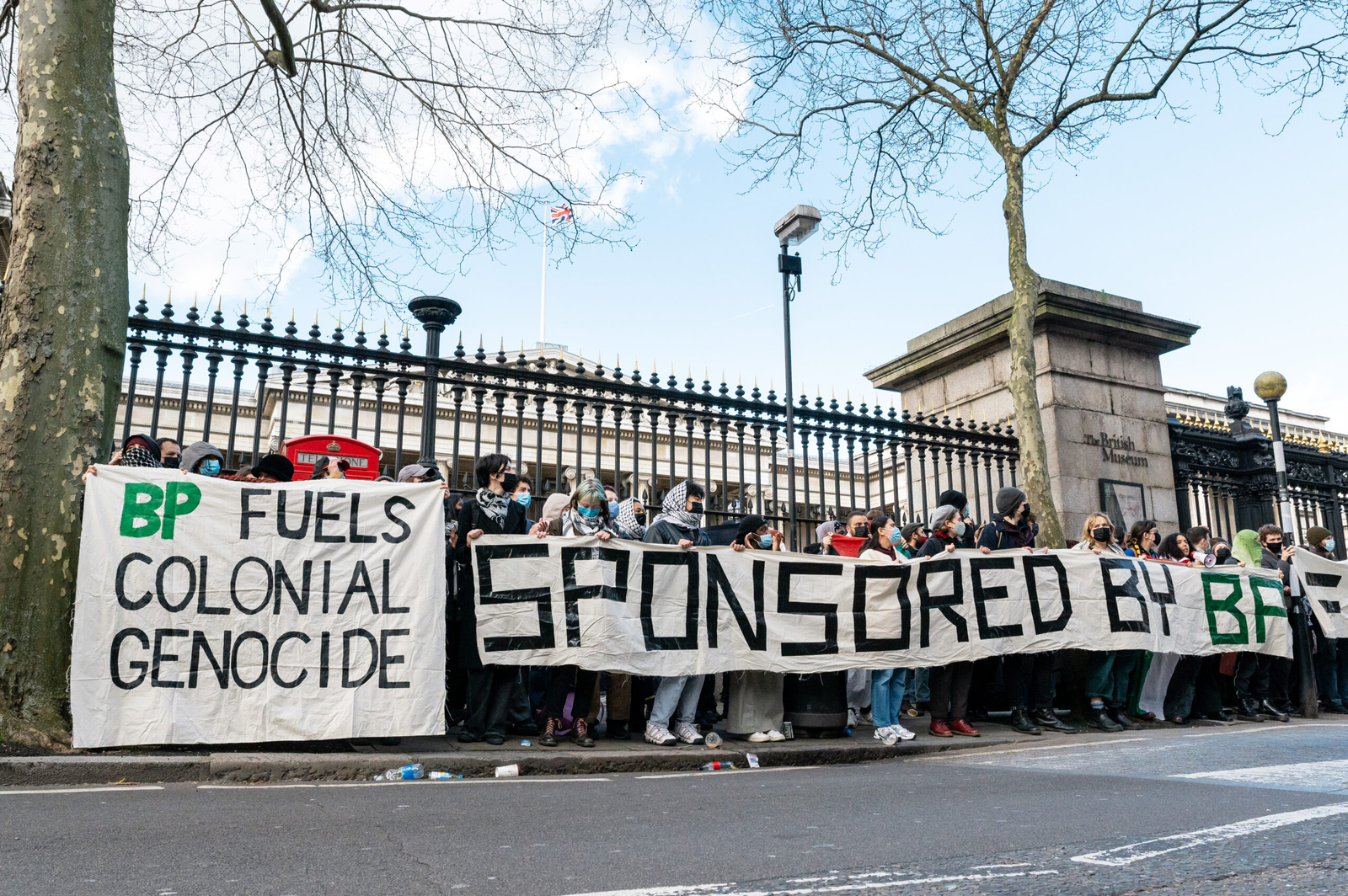
British Museum, drop BP now
Our demand is simple: British Museum, drop BP now. Through this demand and our actions, we uncover the British Museum and BP’s empty commitments to the values of liberal democracy. This progressive image directly contradicts their collusion with systems policing pro-Palestinian protests and their complicity in the ongoing genocide being carried out by Israel against Palestinians.
Energy Embargo For Palestine exposes this network of imperialist relations that form the bedrock of British capitalism. As people of conscience situated in the Global North, this is our responsibility – to make these connections legible and to organise until they are dismantled.
Our intention is to keep targeting the museum until they end their partnership with BP, because we refuse to let cultural development in Britain come at the expense of ecological and cultural destruction in the Global South.
After that point, we will challenge every single remaining partnership BP has with institutions in the cultural sector and beyond, until they stop fuelling the Israeli war machine.
This is just one of many ways we intend to apply pressure on Western energy companies that invest and partner with Israeli energy companies to cut all ties with the settler state, and we urge other people of conscience from around the world to do the same.
What can you do?
- Donate to the Energy Embargo for Palestine campaign here to help fund their research and future actions (both one-off donations and recurring contributions are welcome)
- Take part in EEFP’s #BoycottBritishMuseum digital campaign
- Find out more about EEFP in this Jacobin article ‘Why We Occupied the British Museum’ – penned by the campaign after their first action in February
- Read Manal Shqair’s TNI article on Arab-Israeli eco-normalisation, which is featured in the book ‘Dismantling Green Colonialism: Energy and Climate Justice in the Arab Region,’ published by Pluto Press.
- Read this explainer by Disrupt Power, outlining how European energy companies are scrambling for exploration licences in the occupied waters of the Eastern Mediterranean
- Follow & support Global Energy Embargo for Palestine (@palenergyembargo) – a coalition of Palestinian organisations working with a team of researchers to analyse energy flows to Israel and identify choke points in its supply chain.
- Download Netpol’s free guide: ‘How to monitor the police’ to identify local issues +access practical strategies for holding police to account and supporting people after contact with the police
- Read other articles about Palestine HERE

